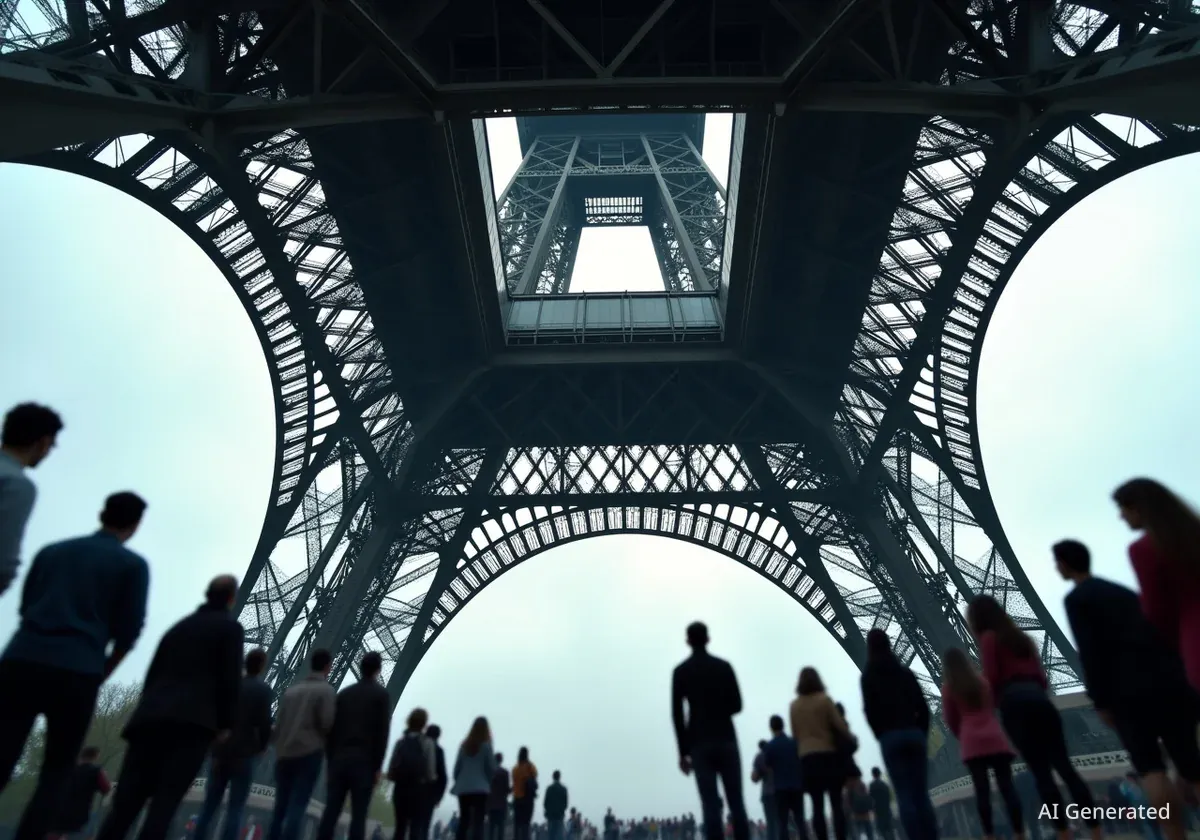Recent viral claims suggesting the Eiffel Tower will be demolished in 2026 are not true. These widespread social media posts are based on a misunderstanding of events and a satirical article. The iconic Paris landmark remains open to visitors, and its operating company has not confirmed any such plans.
Key Takeaways
- Claims about the Eiffel Tower's demolition in 2026 are false.
- Misinformation originated from a satirical article and social media posts.
- The Eiffel Tower temporarily closed on October 2, 2025, due to a strike, not demolition plans.
- The landmark generated €117.87 million in revenue in 2023.
- Fake news can significantly impact the tourism industry.
Understanding the Viral Claims
Reports about the Eiffel Tower's impending demolition in 2026 have recently gained significant traction online. These claims suggest the 330-meter structure, a global symbol of France, is reaching the "end of an era." Social media platforms, particularly X (formerly Twitter), have seen numerous posts spreading this misinformation.
Accounts with hundreds of thousands of followers shared misleading messages. These posts stated that the tower was scheduled for demolition after its operating lease expired. They cited "structural fatigue, costly maintenance, and rising public complaints" as reasons for this decision.
Eiffel Tower by the Numbers
- Height: 330 meters (1,083 feet)
- Annual Visitors: Millions
- 2023 Revenue: €117.87 million
- Employees: Over 300 in Paris
- State Subsidies: Receives none
Origin of the Misinformation
The false claims appear to be a mix of two separate events. One was a temporary closure of the Eiffel Tower due to a strike. The other was a satirical news article published weeks earlier.
On October 2, 2025, the Eiffel Tower indeed closed its doors to visitors. This closure was a direct result of widespread protests across France. Residents in over 200 towns and cities demonstrated against government spending cuts. They also called for higher taxes on wealthy individuals. Thousands participated in Paris, leading to the tower's temporary suspension of access for safety reasons.
"Due to a strike, the Eiffel Tower is closed," a sign at the attraction stated. "We apologise."
This temporary closure was then linked to an earlier satirical piece. The satirical article joked that the Eiffel Tower would be torn down. It suggested the site would be replaced with a "giant slide" or a concert hall. Social media users then combined these two unrelated stories, creating a false narrative of demolition.
The Eiffel Tower's Status
Despite the rumors, the Eiffel Tower is not facing demolition. Société d’Exploitation de la Tour Eiffel (SETE), the company managing the tower, has not issued any public statement regarding these viral claims. This silence further indicates the lack of truth in the reports.
Tourists can still book tickets to access the Eiffel Tower's lifts and visit the attraction. Its official website shows ongoing availability for future visits. This directly contradicts any notion of its removal.
Impact of Fake News on Travel
Fake news and fabricated claims can cause significant disruption in the travel industry. Destinations that rely heavily on tourism can experience negative impacts on their reputation and revenue. These false narratives can deter potential visitors and damage local businesses.
Combating Misinformation in Tourism
The spread of false information poses a real threat to the tourism sector. Earlier in 2025, Italy introduced new measures to combat fake hotel and restaurant reviews. Business owners had reported that their reputations were being unfairly damaged by untrue online content.
Italy's Ministry of Enterprises reported that false or manipulated content affects between 6% and 30% of the revenue for businesses in the hospitality and tourism sectors. To address this, new rules require tourists to provide proof of a visit before submitting a review.
"Today marks an important step for the protection of our businesses," Daniela Santanché, Italy’s tourism minister, stated during the legislation's introduction. "Reviews, which thanks to this regulatory intervention will actually be truthful, are fundamental for the success of companies and for the trust of consumers and tourists."
This example highlights the importance of verifying information, especially in an age where news spreads rapidly online. For major landmarks like the Eiffel Tower, accurate reporting is crucial to prevent unnecessary panic and ensure visitors have correct information.
TravModo has reached out to SETE for an official comment on the viral claims. The Eiffel Tower remains a key attraction in Paris, attracting millions annually and contributing significantly to the city's economy without government subsidies.
The Eiffel Tower's Enduring Legacy
For over 135 years, the Eiffel Tower has stood as a symbol of French engineering and culture. It was completed in 1889 for the World's Fair and quickly became a global icon. Its presence in Paris is deeply ingrained in the city's identity and global image.
The monument's continuous operation and popularity underscore its importance. It is one of the few French monuments that operates without state subsidies. This demonstrates its financial self-sufficiency and strong visitor appeal. The over 300 people employed directly by the tower also show its economic impact on the local community.
Travelers planning a visit to Paris can be assured that the Eiffel Tower is not scheduled for demolition. It continues to welcome guests from around the world, offering views and experiences that have captivated millions for generations.





